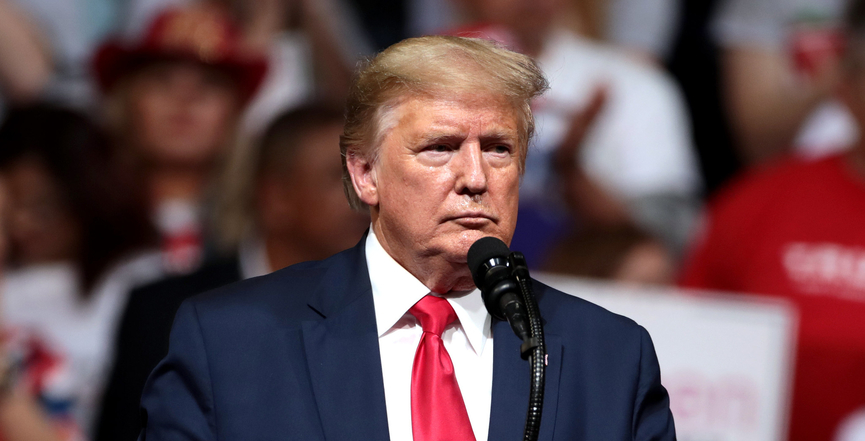The weight of history is bearing down on the United States, as mass protests confront the enduring impact of systemic racism. Millions have been moved to action by the police murders of African-Americans George Floyd in Minneapolis, Breonna Taylor in Louisville, Kentucky, Tony McDade in Tallahassee, Rayshard Brooks in Atlanta, and by the killing of Ahmed Arbery in Brunswick, Georgia, by a retired police officer and his son.
Meanwhile, Donald Trump is holding one of his signature demagogic rallies, the first since the pandemic struck, at an indoor arena in Tulsa, just as Oklahoma suffers its worst week of COVID-19 infections. Trump refuses to wear a mask publicly, and, while the Trump campaign won’t require attendees to wear masks either, it will require them to sign a waiver releasing the campaign from liability should they contract COVID-19.
Trump’s choice of Tulsa has angered many. COVID-19 disproportionately impacts African Americans. If the rally, as expected, causes a further surge in local coronavirus cases, the Black community will potentially be the most impacted. Furthermore, this month marks the 99th anniversary of one of the worst massacres of African Americans in U.S. history. In June, 1921, a white mob burned to the ground Tulsa’s affluent, African-American neighborhood of Greenwood, known as Black Wall Street, killing at least 300 residents.
Trump also scheduled his rally for June 19, known as Juneteenth, a day of commemoration and celebration in the African-American community. Juneteenth is the anniversary of the day enslaved people in Galveston, Texas first heard of their liberation following the Civil War. On that day in 1865, Union Army General Gordon Granger publicly read General Order Number 3, which stated, “The people of Texas are informed that … all slaves are free.” Word spread and spontaneous celebrations ensued. It had been more than two and a half years since president Lincoln issued the Emancipation Proclamation.
In a 1941 audio interview recorded by the Library of Congress, Laura Smalley, born into slavery in Texas, recalled learning of her freedom as a child. The plantation owner who enslaved her, Mr. Bethany, had returned from war, but didn’t tell those he enslaved that the Confederacy had lost the war, and that they were free. “Old master didn’t tell you they was free … No he didn’t tell. They worked there, I think now they say they worked them, six months after that. Six months. And turn them loose on the nineteenth of June. That’s why, you know, we celebrate that day.”
Trump’s appropriation of Juneteenth for his rally provoked outrage. California Democratic Senator Kamala Harris tweeted, “This isn’t just a wink to white supremacists — he’s throwing them a welcome home party.” Fearing mass protests in Tulsa, Trump caved, shifting the rally to June 20. Tulsa attorney and author Hannibal Johnson, who wrote the definitive history of the 1921 Tulsa massacre, said of Trump’s rally, on the Democracy Now! news hour, “Here in Tulsa, we are working hard … on moving our community closer together as we approach the 100th anniversary of the 1921 Tulsa race massacre. The rally has the potential to be a disruption on the road to reconciliation.”
Also speaking on Democracy Now!, scholar, activist and Black liberation icon Angela Davis added, “Trump represents a sector of the population in this country that wants to return to the past — ‘Make America great again’ — with all of its white supremacy, with all of its misogyny. At this moment we are recognizing that we cannot be held back by such forces.”
Strong currents are countering Trump as he inflames racism and encourages police violence against protesters. The Movement for Black Lives is organizing a national weekend of actions across the U.S., including protests outside the White House on Juneteenth.
The Mass Poor People’s Assembly & Moral March on Washington is also taking place on June 20. Unlike Trump’s in-person, indoor rally with no possibility of social distancing and no requirement to wear masks, the Moral March’s lead organizer, Rev. Dr. William Barber, encourages safe organizing. “Stay at Home, Stay Alive, Organize, Organize,” he said recently on Democracy Now!, adding, “We’re going to put a face and a voice on poverty to lay out the demands from people who are impacted and the experts and religious leaders. We’ve got 16 denominations, joining a hundred organizations, but, more importantly, 45 state coordinating committees made up of poor and low-wealth people.”
Mass movements are coalescing, not only to reject hatred and inequality, but to demand equality, through fundamental change to our economic and social structures. No matter how much Trump tries to vilify these activists as thugs and terrorists, it is they, people in the streets, who represent the proudest traditions of protest and dissent, and the best of what this country can be.
Amy Goodman is the host of Democracy Now!, a daily international TV/radio news hour airing on more than 1,300 stations. She is the co-author, with Denis Moynihan, of The Silenced Majority, a New York Times bestseller. This column originally appeared on Democracy Now!
Image: Gage Skidmore/Flickr



